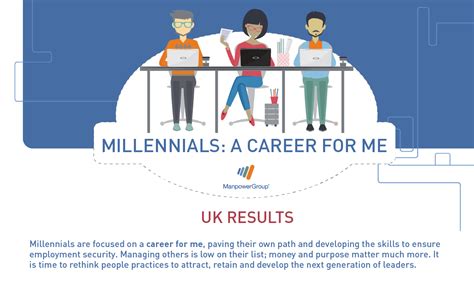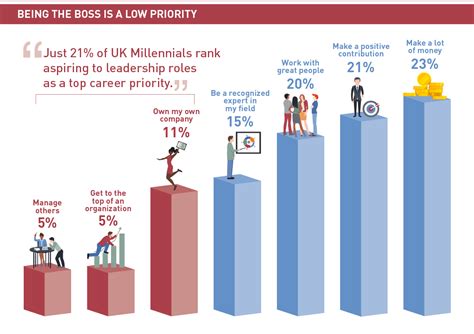
Millennials face a unique career challenge: the pursuit of success, while seemingly positive, can lead to burnout, anxiety, and a feeling of being trapped in a cycle of overwork and unfulfillment. This phenomenon, highlighted in a recent viral TikTok video, resonates with many millennials who are grappling with the pressures of achieving traditional markers of success in a rapidly changing economic landscape.
A 34-year-old millennial, Erica Stolman, shared her perspective in a TikTok video that has garnered significant attention. Stolman, who describes herself as having had a successful career, confessed that she now feels stuck. “The further you get in your career, the harder it is to make a change,” Stolman stated in her video, which has sparked a broader conversation about career fulfillment and the potential downsides of relentless ambition. Her sentiment reflects a growing concern among millennials who feel pressured to constantly climb the corporate ladder, often at the expense of their personal well-being. The pursuit of higher salaries, prestigious titles, and increased responsibility can create a gilded cage, making it increasingly difficult to pivot to a different career path, even if the current one is causing significant stress and dissatisfaction.
Stolman’s experience is not unique. Many millennials find themselves in similar situations, having invested years in building their careers, only to discover that they are no longer aligned with their values or interests. The fear of losing financial security, status, and the perceived stability of a well-established career can be paralyzing, preventing individuals from making necessary changes. The current economic climate, characterized by job market volatility and rising living costs, further exacerbates these anxieties. Millennials, who have already faced economic challenges such as the 2008 financial crisis and the burden of student loan debt, are particularly vulnerable to these pressures.
The pressure to achieve conventional success often stems from societal expectations and the pervasive “hustle culture,” which promotes the idea that constant work and productivity are essential for self-worth. This mindset can lead to chronic stress, burnout, and a diminished sense of personal fulfillment. Millennials, who grew up in an era of rapid technological advancements and increased global competition, may feel particularly compelled to meet these expectations. The constant connectivity and the pressure to maintain a polished online presence can further amplify these anxieties.
The key to navigating this career conundrum lies in proactively assessing one’s values, interests, and priorities. Regularly evaluating career goals and making adjustments as needed can help prevent the feeling of being trapped. It is also crucial to prioritize mental and physical well-being and to challenge the notion that success must come at the expense of personal happiness. Strategies such as setting boundaries, practicing mindfulness, and seeking support from therapists or career coaches can be invaluable in managing stress and maintaining a healthy work-life balance. Furthermore, cultivating a strong sense of self-worth that is not solely tied to career achievements can help individuals make more authentic and fulfilling choices.
The conversation sparked by Stolman’s TikTok video underscores the need for a broader societal shift in how we define and measure success. It calls for a reevaluation of the values that drive our career choices and a greater emphasis on personal well-being and fulfillment. Encouraging open dialogue about the challenges of career advancement and promoting a culture that supports work-life balance can help millennials navigate the complexities of the modern workplace and create more sustainable and rewarding careers. The awareness around this issue can empower individuals to make conscious decisions about their professional paths, ensuring that their pursuit of success aligns with their personal values and contributes to their overall happiness and well-being.
In-Depth Analysis:
The article sheds light on a growing concern among millennials – the potential downsides of striving for traditional career success. While ambition and hard work are often lauded as virtues, the relentless pursuit of higher salaries, prestigious titles, and increased responsibility can lead to a sense of being trapped and unfulfilled. This phenomenon is particularly relevant in today’s rapidly changing economic landscape, where job security is less certain and the pressure to constantly adapt and innovate is ever-present.
The “hustle culture” prevalent in many industries further exacerbates these anxieties. This culture promotes the idea that constant work and productivity are essential for self-worth, often at the expense of personal well-being. Millennials, who have grown up in an era of intense competition and rapid technological advancements, may feel particularly compelled to adhere to these expectations.
The article also highlights the importance of proactively assessing one’s values, interests, and priorities. Regularly evaluating career goals and making adjustments as needed can help prevent the feeling of being trapped. This requires a willingness to challenge conventional notions of success and to prioritize personal fulfillment over external validation.
Moreover, the article emphasizes the need for a broader societal shift in how we define and measure success. Encouraging open dialogue about the challenges of career advancement and promoting a culture that supports work-life balance can help millennials navigate the complexities of the modern workplace and create more sustainable and rewarding careers.
Background Information:
The millennial generation, typically defined as those born between 1981 and 1996, has faced a unique set of economic and social challenges. They entered the workforce during the 2008 financial crisis, which resulted in widespread job losses and a slow economic recovery. Many millennials also carry significant student loan debt, which can further limit their financial flexibility and career options.
In addition to these economic challenges, millennials have also grown up in an era of rapid technological advancements and increased global competition. This has created a sense of pressure to constantly adapt and innovate in order to remain competitive in the job market. The rise of social media has also contributed to this pressure, as millennials are constantly bombarded with images of seemingly perfect lives and careers.
As a result, many millennials are experiencing high levels of stress, anxiety, and burnout. They may feel trapped in their careers, even if they are financially successful, because they are no longer aligned with their values or interests. The fear of losing financial security, status, and the perceived stability of a well-established career can be paralyzing, preventing individuals from making necessary changes.
Expanded Context:
The issue of millennial career burnout is not just an individual problem; it has broader implications for the economy and society as a whole. When individuals are feeling unfulfilled and disengaged in their work, their productivity and creativity can suffer. This can negatively impact innovation, economic growth, and overall societal well-being.
Moreover, the high levels of stress and anxiety experienced by many millennials can lead to health problems, such as depression, anxiety disorders, and chronic illnesses. These health problems can further strain the healthcare system and reduce overall quality of life.
Addressing the issue of millennial career burnout requires a multi-faceted approach. Individuals need to take proactive steps to assess their values, interests, and priorities, and to make adjustments to their careers as needed. Employers need to create work environments that support work-life balance, promote employee well-being, and encourage open communication about the challenges of career advancement.
Finally, society as a whole needs to reevaluate how we define and measure success. We need to move away from a narrow focus on financial wealth and material possessions and towards a more holistic understanding of success that includes personal fulfillment, social impact, and overall well-being.
The conversation started by Erica Stolman’s viral TikTok video is a crucial step in this direction. By openly discussing the challenges of career advancement and the potential downsides of relentless ambition, we can empower millennials to make more conscious decisions about their professional paths and to create more sustainable and rewarding careers.
The societal shift towards recognizing the importance of mental health in the workplace is also critical. Companies are increasingly implementing programs and resources aimed at supporting employees’ emotional well-being. These initiatives can range from offering mental health benefits and access to counseling services to promoting mindfulness practices and encouraging open communication about stress and burnout. By prioritizing mental health, organizations can create a more supportive and inclusive environment where employees feel comfortable seeking help and prioritizing their well-being.
Furthermore, the rise of remote work and flexible work arrangements has the potential to alleviate some of the pressures associated with traditional career paths. By allowing employees to work from home or adjust their schedules to better fit their personal needs, companies can help reduce stress and improve work-life balance. However, it’s important to note that remote work can also present its own set of challenges, such as increased isolation and difficulty disconnecting from work. Therefore, it’s crucial for companies to provide support and resources to help employees navigate these challenges and maintain a healthy balance.
The changing nature of work itself is also contributing to the reevaluation of career priorities. As automation and artificial intelligence become more prevalent, many traditional jobs are being disrupted or eliminated. This is forcing individuals to consider new career paths and to develop skills that are in demand in the modern economy. The emphasis is shifting from specialized knowledge to adaptability, creativity, and critical thinking. Millennials, who are generally tech-savvy and adaptable, are well-positioned to thrive in this new landscape, but they also need to be proactive in acquiring new skills and staying ahead of the curve.
Ultimately, the challenge for millennials is to find a way to balance their career aspirations with their personal values and priorities. This requires a willingness to challenge conventional notions of success, to prioritize mental and physical well-being, and to cultivate a strong sense of self-worth that is not solely tied to career achievements. By doing so, they can create more fulfilling and sustainable careers that contribute to their overall happiness and well-being.
Quotes:
- “The further you get in your career, the harder it is to make a change,” – Erica Stolman.
FAQ:
Q1: What is the main point of the article?
A1: The article discusses how the pursuit of career success can lead to burnout, anxiety, and a feeling of being trapped for millennials, highlighting the importance of prioritizing well-being and reevaluating traditional definitions of success.
Q2: What is the key concern that Erica Stolman expresses in her TikTok video?
A2: Erica Stolman expresses the concern that the further one advances in their career, the more difficult it becomes to make a change, leading to a feeling of being stuck and unfulfilled.
Q3: What are some factors contributing to the pressure millennials feel in their careers?
A3: Factors contributing to the pressure include societal expectations, the “hustle culture,” the 2008 financial crisis, student loan debt, rapid technological advancements, and increased global competition.
Q4: What strategies does the article suggest for millennials to navigate this career challenge?
A4: The article suggests proactively assessing values and priorities, regularly evaluating career goals, prioritizing mental and physical well-being, setting boundaries, practicing mindfulness, and seeking support from therapists or career coaches.
Q5: What broader societal changes does the article call for?
A5: The article calls for a reevaluation of how society defines and measures success, encouraging open dialogue about career challenges, and promoting a culture that supports work-life balance and employee well-being.









